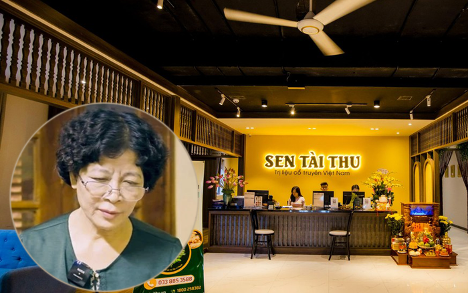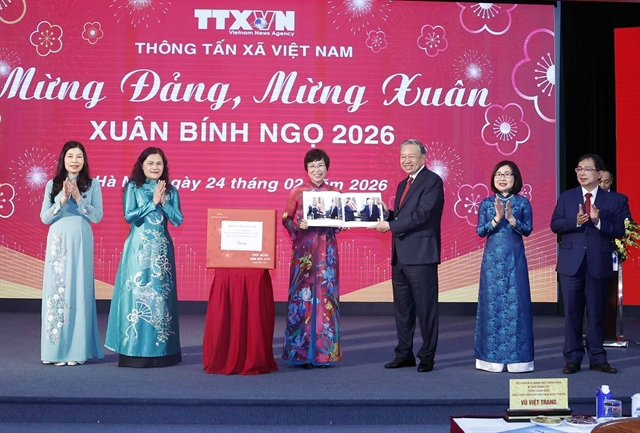 Society
Society

Phú Bình carpentry village in northern Thái Nguyên Province is well known for sophisticated woodened products manipulated by skillful hands of local artisans. However, the creation of trademark and intellectual property register of the traditional handicraft village has yet to be paid due attention.
18554011PM.jpg) |
| La Bằng Tea-a traditional Vietnamese product having trademark register, design, logo-is introduced to visitors to a workshop in Thái Nguyên Province. – VNS Photo Khánh Dương |
HÀ NỘI — Phú Bình carpentry village in northern Thái Nguyên Province is well known for sophisticated woodened products made by local artisans. However, these products are rarely protected by trademarks and intellectual property rights.
Nguyễn Văn Đức, a local artisan told Việt Nam News that carpentry traditions in the village had been passed down through the generations, though production capacity is still small-scale with few links between households.
“We are only villagers without any knowledge of trademarks or intellectual property. Local authorities pay little attention to trademark creation,” he said.
“Our markets are mainly northern provinces and cities. Everyone knows about our products through word of mouth. We don’t have a channel to promote our products”
“Several years ago, the provincial Department of Industry and Trade gave us a website to promote products. But villagers like us are low-tech so we could not take advantage of the website”
“We need instructions from authorised agencies to develop our products’ trademark and reach more markets”
Like Phú Bình village, many fine art handicraft villages in Thái Nguyên Province and across Việt Nam have not been assisted to create trademarks. Many time-honoured products are even faked as they do not have recognisable designs.
There are currently more than 5,000 trade villages nationwide, some 1,700 of which are officially recognised with more than 200 fine art handicraft products, according to the Ministry of Agriculture and Rural Development.
Phan Ngân Sơn, deputy head of Intellectual Property Rights Department under the Ministry of Science and Technology said few handicraft villages registered intellectual property in Việt Nam compared to the total number of villages.
“Creating brands is not common enough to make Vietnamese handicraft products competitive on the international markets,” he said.
According to the official, intellectual property involves copyright, patent, recognisable trademarks and trust of customers in products’ quality.
Lưu Duy Dần, Việt Nam Association of Craft Village president said that Vietnamese handicraft products use local materials and are made by experienced artisans. They feature cultural features of each region, which make the products more competitive internationally.
However, design packages and new products have not been to the taste of domestic and foreign markets.
At a recent workshop on supporting trademark development for fine art handicraft products held in Thái Nguyên City, participants agreed that building handicraft villages’ brands is a necessary step to expand production, promote product values and ensure competitiveness for villages.
Encouraging progress
The Intellectual Property Rights Department has recognised intellectual property for high quality handicraft products to help develop well-known brands. La Bằng Tea made by locals from Đại Từ District, Thái Nguyên Province was one of the first handicraft brands to register as intellectual property.
From a co-operative established in 2006, La Bằng Tea’s trademark was recognised by the Intellectual Property Rights Department in 2012. Since then, the products have been promoted at festivals and handicraft fairs across the country. It was selected as one of five handicraft products by Government Office to be presented to international delegates at the Asia-Pacific Economic Cooperation meeting to be held in Việt Nam later this year.
This month, the Việt Nam Association of Craft Village has collaborated with Hà Nội-based University of Industrial Fine Arts to open product and trademark design courses for artisans to improve their skills to develop brands. Each course is scheduled to run for three years for some 30 learners.
“I hope that this collaboration will bring arts’ role into building Vietnamese handicraft brands so that the products will be deeply integrated into domestic and international markets,” said Đặng Mai Anh, University of Industrial Fine Arts deputy director. — VNS




